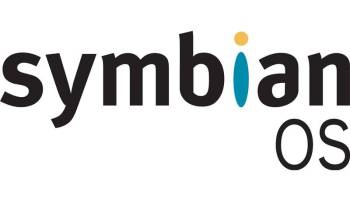Nokia Beaten Down By Android, iPhone

Symbian is struggling to remain viable as Android and iPhone dominate the smartphone platform market
Nokia Faces Stiff Challenges
While Android and Apple iOS have raised the bar for handsets with video chat, voice search, near field communications and other perks, innovation on Symbian has waned, leading Sony-Ericsson to move away from the platform.
Indeed, Reuters noted that Elop is looking “for top people with good software expertise.”
Analyst Ken Dulaney said Nokia’s slide is just another example of how smartphone platforms enjoy different eras. High-end smarphones have already seen the Palm era, the Blackberry era and now the iPhone era.
 Nokia has been working off a keyboard-driven user interface that worked well a decade ago. But in a new era dominated by iPhone and Android devices, it’s hard to migrate a keyboard OS to the touch-screen interface.
Nokia has been working off a keyboard-driven user interface that worked well a decade ago. But in a new era dominated by iPhone and Android devices, it’s hard to migrate a keyboard OS to the touch-screen interface.
“But ultimately these companies and Nokia have difficulty because they are not ultimately software companies like Apple or Android,” Dulaney said. “They just don’t think like these companies do. And while they create fantastic hardware, the software is not developed to the level that the modern buyer expects.”
Nokia to tie up with Microsoft
So what is Nokia doing about it? The hot rumour from 4 February was that Nokia will port Microsoft Windows 7 mobile software onto Nokia smartphones.
However, while this might give Nokia a greater presence in North America, it’s unclear just how great that presence will be. The early word is WP7 is not selling well. A Nokia and Microsoft tie-up might yield two smartphone Titanics.
Analyst Gold said Nokia might consider creating a smartphone line on Android with a customised Nokia user interface, much like HTC does with Sense and Motorola does with Blur.
“This should allow you to get to market very quickly with a line of compelling smartphone devices that are competitive while giving current Nokia users a migration path with a familiar UI paradigm,” Gold said.
There is still time. Nokia remains the world’s top mobile phone seller, with 31 percent of the market as some 1.3 billion people worldwide use Nokia phones. The brand remains strong even if the push to modernise Symbian has been slow.
“They do have an opportunity due to their huge global presence,” Dulaney added. “And in emerging markets they continue to do well. There is time for them to change. But Elop will have to take risks that might seem uncomfortable for Nokia at first.”